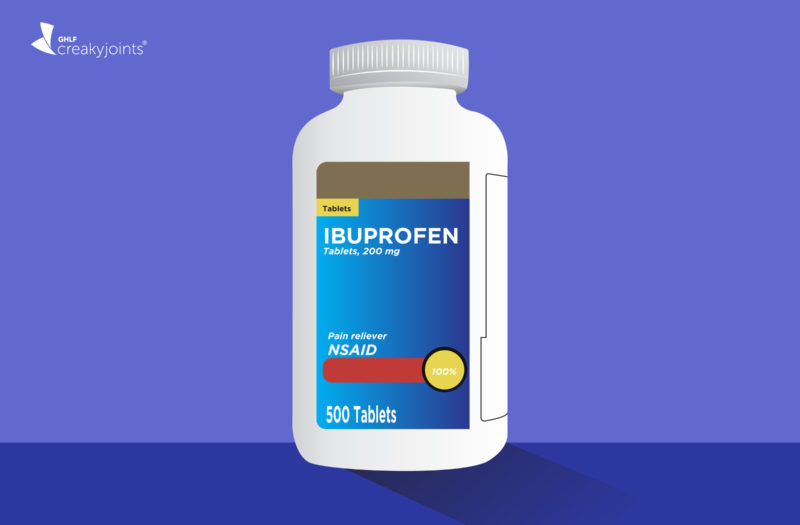Many arthritis patients use non-steroidal anti-inflammatory drugs (NSAIDs), such as ibuprofen or naproxen, to ease pain, as do many people who are recovering from various types of surgery. While reaching for these drugs whenever pain strikes might seem like the obvious way to go (unless your doctor has instructed you to avoid them or take them prophylactically), there might be another factor to consider: the time of day when you take them.
According to a new study, published in the journal Scientific Reports, using NSAIDs during the daytime might be preferable to taking them at night (such as before bed).
This preliminary finding comes from a study that compared the effects of NSAID timing on pain and post-operative healing in 16 mice who had tibia (shinbone) fracture surgery.
In the study, mice were randomly assigned to two groups: One group was given NSAID injections during rest periods every day for three days following surgery (akin to taking medication at night); the other received the same NSAID dose for the same period but it was administered at a time of day when the mice would normally be active (akin to taking medication during the day). The medication/dose was equivalent to giving a human 500 mg of ibuprofen every eight hours.
Two weeks after surgery, the mice that had received NSAIDs during the active part of their day had returned to putting weight on the affected limb, whereas “mice treated during the resting phase still showed slower recovery,” the authors wrote.
Why might timing of NSAID medication matter? It has to do with your biological clock. Or, in this case, a mouse’s biological clock.
“The expression of the genes involved in the circadian clock pathway and circadian rhythm biological process was affected by NSAID chronotherapy,” the authors explained. “Chronotherapy” means using the body’s internal clock, or circadian rhythm, to optimize treatment.
“Our results suggest that NSAID administration during the daily activity period results in better postoperative healing and recovery in a bone surgery model. This is likely due to the impact of NSAID timing on inflammation at the healing site, especially through the overexpression of circadian clock genes such as Per2.”
Should you stop use NSAIDs before bed if that’s when you usually take them? Not necessarily. Mice aren’t people, so this research may or may not translate. But it may be worth having a conversation with your doctor about it, especially because other drugs like prednisone are already typically only used in the daytime to promote healing and reduce gastrointestinal and insomnia side effects.
Track Your Medications with ArthritisPower
Join CreakyJoints’ patient-centered research registry and log your medications to track side effects and impact on disease activity. Learn more and sign up here.
Al-Waeli H, et al. Chronotherapy of Non-Steroidal Anti-Inflammatory Drugs May Enhance Postoperative Recovery. Scientific Reports. January 2020. doi: https://doi.org/10.1038/s41598-019-57215-y.
Stott R. Daytime-only NSAID dosing may foster improved healing, recovery. Healio Rheumatology. February 13, 2020. https://www.healio.com/news/rheumatology/20200213/daytimeonly-nsaid-dosing-may-foster-improved-healing-recovery.






